Colombian authorities shut down a decrepit monkey laboratory on January 30 funded by the National Institutes of Health (NIH) with U.S taxpayers’ dollars following revelations of animal abuse, neglect, and potential fraud.
The rights group People for the Ethical Treatment of Animals (PETA) recently published the results of an exhaustive 18-month investigation into the laboratory, known as Fundación Centro de Primates (FUCEP), and its administrators, husband and wife team Sócrates Herrera Valencia and Myriam Arévalo Ramírez. Herrera and Arévalo, according to PETA’s investigation, secured more than $17 million in NIH contracts across 58 grants since 2003 according to NIH’s public records — paid with U.S. taxpayer money. The FUCEP laboratory, PETA found, was poorly run, dirty, and very likely abusive to its animal subjects.
NIH describes itself on its website as “the largest public funder of biomedical research in the world, investing more than $32 billion a year to enhance life, and reduce illness and disability.”
The case highlights concerns in the United States that the nation’s public health apparatus is funding, but failing to exercise proper oversight over, bioresearch facilities around the world that may not operate responsibly, potentially abusing animals and putting the planet at risk of exposure to harmful pathogens.
Those concerns have escalated greatly in response to the ongoing coronavirus pandemic, beginning in central Wuhan, China, in 2019. In 2021, the NIH confirmed that it had funded gain-of-function research at the Wuhan Institute of Virology, a top-level research facility known to have been studying bat coronaviruses at the time the pandemic began. The Chinese government has denied any connection between the Wuhan Institute of Virology and the pandemic and formally claims that the pandemic began at the U.S. Army laboratory in Fort Detrick, Maryland, offering no evidence for this claim.
Growing outrage surrounding the oversight of these sorts of projects has led to legal trouble for the NIH. The taxpayer watchdog group White Coat Waste Project (WCW) filed a lawsuit against the NIH in January 2022 for exempting foreign laboratories funded with U.S. taxpayer money from oversight and compliance with animal protection laws and biosafety protocols that protect both animals and U.S taxpayer funds.
“Polls show that taxpayers in both parties support our campaign to end wasteful government spending in labs at home and abroad. Stop the money,” Justin Goodman, WCW’s Senior Vice President of advocacy and public policy, told Breitbart News in response to a request for comment on the FUCEP case.
The monkey laboratory in Colombia, known as Fundación Centro de Primates (FUCEP), was located in the city of Cali. The facility is associated with Centro de Investigación Científica Caucaseco (Caucaseco Scientific Research Center), and the Malaria Vaccine and Development Center (MVDC). Herrera and Arévalo sit on the boards of all three organizations and some of their underaged children also mysteriously appeared as board members for the Caucaseco Scientific Research Center, PETA alleged, raising questions as to its legitimacy.
FUCEP claimed to be conducting research to produce a malaria vaccine. On its website, the organization asserts that since its creation, it has been “been dedicated to ensure the conditioning and care of primates,” boasting that it has tested over 20 malaria vaccine candidate molecules and several antimalarial compounds “which has been possible thanks to the execution of multiple cooperative research projects with national and international groups,” including the NIH and the World Health Organization (W.H.O.).
PETA’s investigation of the FUCEP monkey laboratory found that the monkeys had been deliberately infected with the malaria parasite and that their spleens were surgically removed before the animals were killed.
Some monkeys had been left to die from infected wounds. PETA also found tiny owl monkeys held in rusty cages amid their own waste in a makeshift pen made of backyard fencing and plastic sheets and were fed dog kibble soaked in sugary water.
Warning – Disturbing Images:
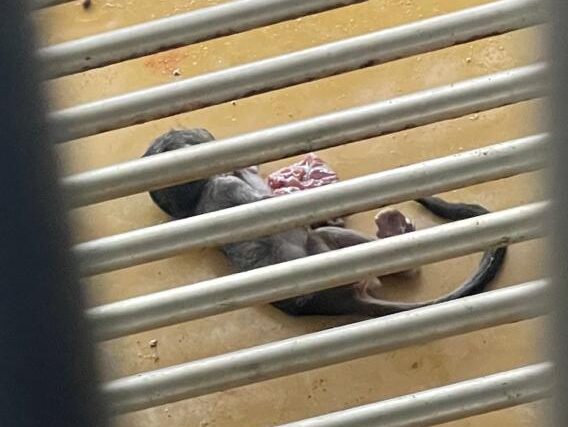
Photos of monkeys from the Fundación Centro de Primates (FUCEP) in Cali, Colombia. (Photo courtesy PETA)
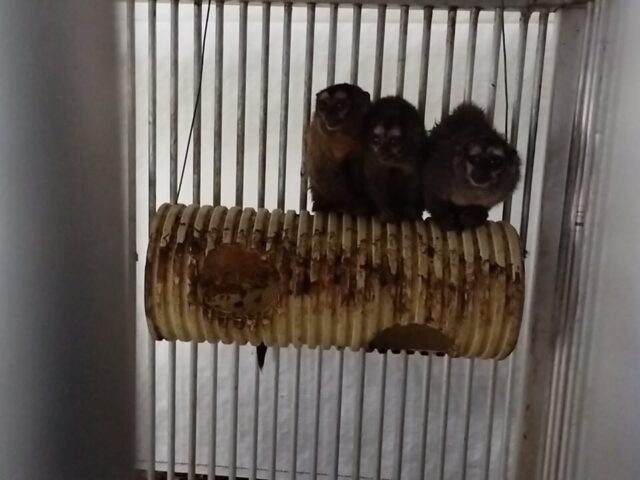
Photos of monkeys from the Fundación Centro de Primates (FUCEP) in Cali, Colombia. (Photo courtesy PETA)
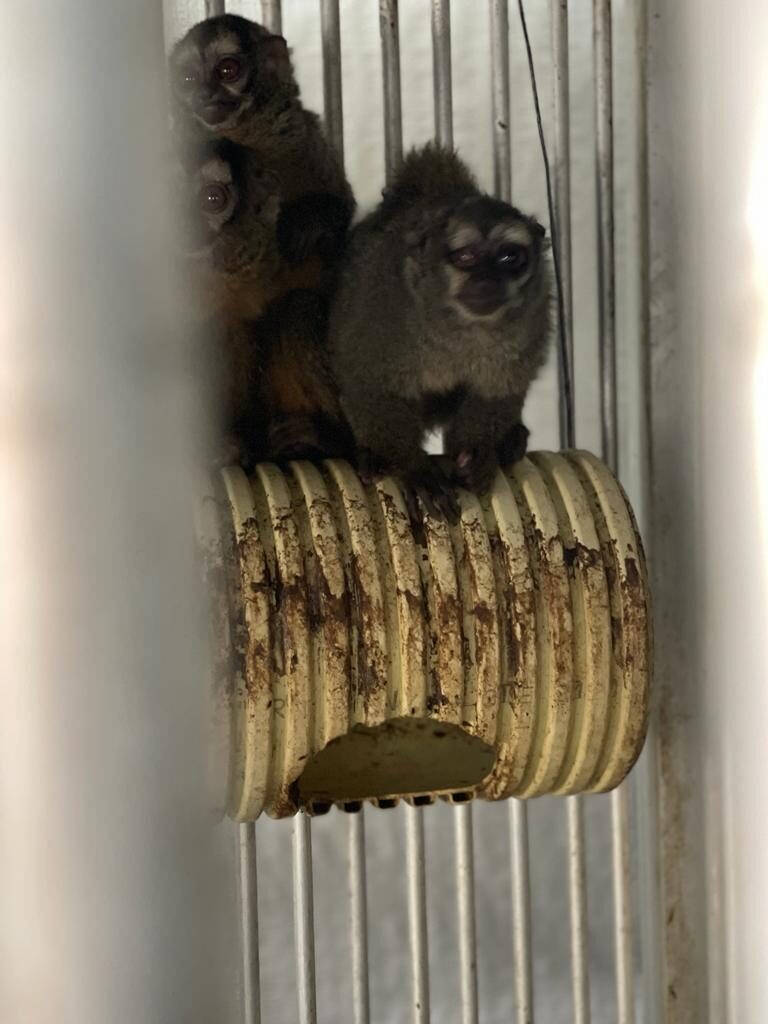
Photos of monkeys from the Fundación Centro de Primates (FUCEP) in Cali, Colombia. (Photo courtesy PETA)
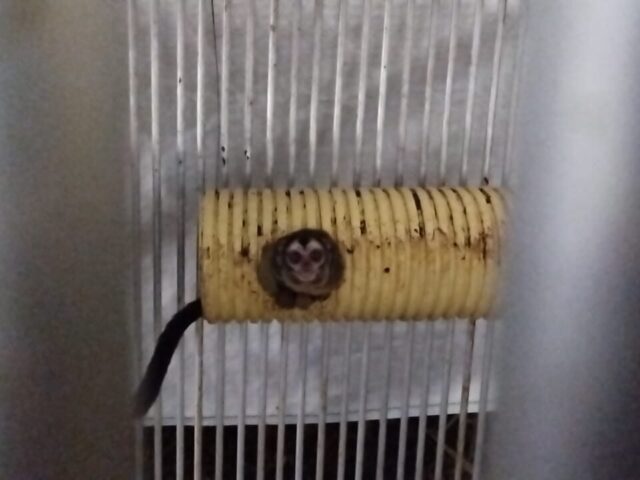
Photos of monkeys from the Fundación Centro de Primates (FUCEP) in Cali, Colombia. (Photo courtesy PETA)
Dr. Magnolia Martínez, who ran the 18-month PETA investigation, told Breitbart News that before setting up the FUCEP monkey laboratory and his affiliated organizations, Sócrates Herrera Valencia received nearly $4 million from the National Institute of Allergy and Infectious Diseases (NIAID) and NIH Fogarty International Center between 2001 and 2005, when Herrera Valencia was affiliated with Universidad del Valle, a Colombian public university.
“We believe Herrera simply applied for funding and received it in part due to its affiliation with the school,” Dr. Martínez said.
According to a document from the United States Department of Health and Human Services (HHS) obtained by PETA and dated February 1, 2019, Herrera Valencia has a collaboration agreement with Carole A. Long, Ph.D., chief of the Malaria Immunology Section at NIAID’s Laboratory of Malaria and Vector Research — which, according to Dr. Martínez, shows that the NIH had been involved in the malaria experiments conducted in FUCEP’s monkey laboratory.
Dr. Long did not respond to a request for comment from Breitbart News.
Dr. Martínez stated that the NIH should have been aware that the FUCEP monkey laboratory was a project not worth funding, as Sócrates Herrera Valencia does not hold a Ph.D. degree, but rather, took a four-week course on immunology in 1982 at Switzerland’s University of Lausanne.
The website of the Caucaseco Scientific Research Center describes Sócrates Herrera Valencia as a medical doctor who graduated from Colombia’s University of Caldas in 1979, which matches a copy of a title obtained by PETA. The website also states that Herrera received advanced postgraduate training at the Immunology Research and Training Center (IRTC) of the World Health Organization in Geneva, Switzerland between 1981 and 1984.
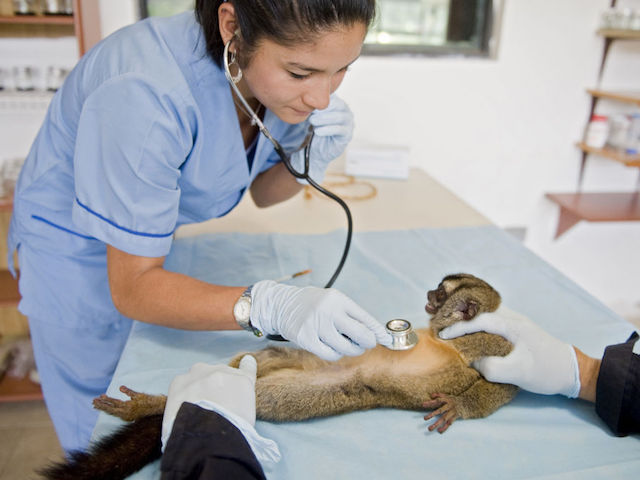
A veterinarian examines a monkey in a laboratory at the Center for Scientific Research Caucaseco in the outskirts of Cali, Colombia, on April 25, 2012, during the World Day for the fight against malaria. (LUIS ROBAYO/AFP via Getty Images)
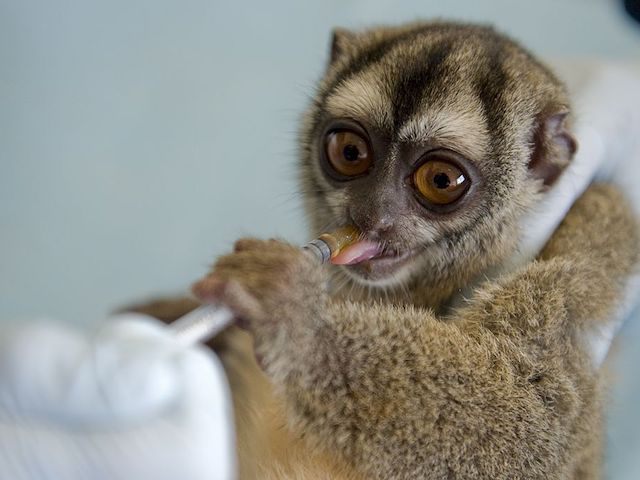
A monkey is given vitamins in a laboratory at the Center for Scientific Research Caucaseco in the outskirts of Cali, Colombia, on April 25, 2012, during the World Day for the fight against malaria. (LUIS ROBAYO/AFP/GettyImages)
His wife, Myriam Arévalo, is described as a bacteriologist, graduated from Colombia’s University College of Cundinamarca, with postgraduate training at the International Immunology Research Center of the World Health Organization (WHO-IRTC) in Geneva, Switzerland, having obtained a Ph.D. in 1999 at the University of Lausanne in Switzerland.
Breitbart News attempted to reach out to the couple for verification but the contacts posted to the FUCEP website were not operational.
PETA’s investigation also found out that the Caucaseco Scientific Research Center, which NIH funded, was founded in 2004 by a board of directors composed of Herrera Valencia, his wife Myriam Arévalo Ramírez, and their three minor children — the youngest of whom was only 12 years old at the time — legally represented by their parents. The board’s composition remained the same since its incorporation and at least through August 2022.
“How serious a research institution like this can be?” Dr. Martínez told Breitbart News. “If the NIH would have bothered asking Herrera and Arévalo to support with the right documentation their claims in grant applications and progress reports, they probably would have found enough inconsistencies to raise suspicion.”
Following the revelations, the Valle del Cauca Autonomous Regional Corporation (CVC), a Colombian government organization tasked with the administration and protection of environmental resources in the nation’s eponymous Valle de Cauca region, launched its own investigation. The CVC found a dead baby monkey, a monkey missing an eye, and monkeys confined in horrific, apparently illegal conditions.
Following its discoveries, CVC ordered an end to all experiments and declared its intent to seize the monkeys trapped in that laboratory.
Sócrates Herrera Valencia most recently received $582,163 for the year 2023 to fund the development of malaria vaccines under the Caucaseco Scientific Research Center, according to the NIH’s public records. The grant appears to be one of two under his name in the records. The grant funding was updated in November, prior to Colombian government action. It remains unclear at press time if Herrera is still eligible to receive, or already received, this funding after the CVC intervention.
The budget for Herrera’s second grant ended on December 31, 2022, and does not show on the NIH’s grant database of active projects.
“Every hard-working American should be appalled to learn that our government is wasting their money funding foreign organizations that break not only American law, but the laws in their own countries,” Dr. Martínez, the PETA investigation leader, told Breitbart News. “Why should Americans continue funding what appears to be criminal activity? FUCEP is only one example in one country. It’s only common sense to imagine that the NIH-funded chaos that PETA uncovered in Colombia may be happening in many other countries around the world.”
Goodman, of WCW, similarly noted that the problem of inappropriate funding for poorly run research programs appears to be endemic at the NIH, detailing several investigations his group has published.
“Our Worldwide Waste campaign, launched in 2019, first uncovered how the National Institutes of Health recklessly ships taxpayer dollars to over 350 animal labs in more than 50 foreign countries—including Colombia and adversaries like Russia and China—with virtually no oversight or accountability,” Goodman explained. “Our investigations first exposed NIAID’s [The National Institute of Allergy and Infectious Diseases] taxpayer funding for dangerous gain-of-function animal experiments at the Wuhan lab that likely caused the pandemic and an illegal NIH loophole that exempts foreign white coats from key oversight and compliance with animal protection laws and biosafety protocols.”
NIH did not respond to a request for comment from Breitbart News on Herrera’s apparently active grant or the FUCEP case generally. PETA also confirmed it was waiting for a response on the status of Herrera’s funding from NIH.
Breitbart News reached out to the Caucaseco Scientific Research Center, but the contact information on its website was inactivated.
Christian K. Caruzo is a Venezuelan writer and documents life under socialism. You can follow him on Twitter here.
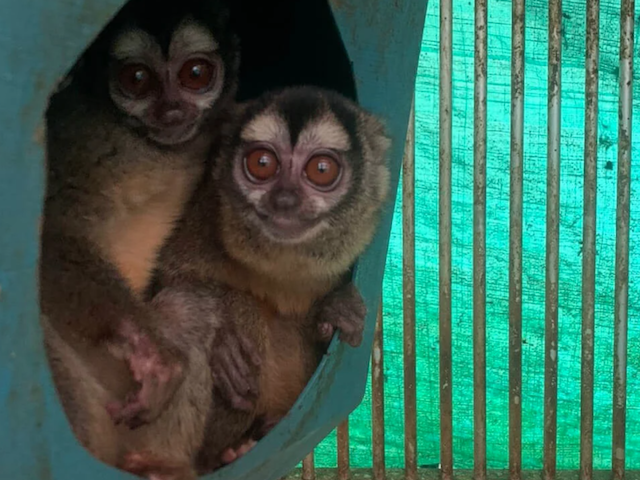
COMMENTS
Please let us know if you're having issues with commenting.